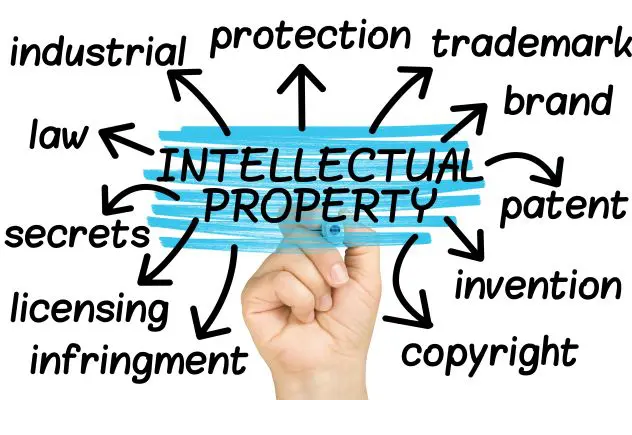
Intellectual property: A Guide to Securing your Ideas.
Most people do not enjoy having to deal with someone else using their idea without permission especially if credit was not given when due. An original idea can be regarded as an “intellectual property (IP)” when and if it is protected by law. According to the World Intellectual Property Organization (WIPO), the formal concept of IP is the “creations of the mind”.
WHAT IS INTELLECTUAL PROPERTY?
Intellectual property is a broad categorical description for the set of intangible assets owned and legally protected by a company or individual from outside use or implementation without consent. An intangible asset is a non-physical asset that a company or person owns.
Creations of the mind – arts, illustrations, chemical formulas, production procedures, symbols, audio recordings, et cetera require heavy investments in brainpower and skill set. That is why companies and individuals would do anything possible to protect their creations or assets.
Companies or individuals have IP not just to protect their creations but also to earn recognition, and possibly benefit from it. Protection can be done using “Intellectual Property rights”. IP rights are legal and institutional laws made to protect the creations of the mind. In this article, you get to understand the rights that can help you secure your high-value ideas or innovations.
TYPES OF INTELLECTUAL PROPERTIES
1. Trademarks
A trademark is a sign capable of distinguishing the goods or services of one enterprise from those of other enterprises. Recognizable symbols, words, or designs that represent a person, company, product, or service are “trademarks”.
They are used to distinguish the product or services of an individual or company from another. Getting a trademark right gives you the legal ability to sue for “Intellectual Property Infringement” (IPI) – this occurs when a person or company engages in the unauthorized use of IP.
For instance, you can sue an individual or a company for using your logo without authorization. When you apply for the right to own and control a logo, the logo becomes your trademark. This means it can only be used by you and no individual or company can use it without your permission.
Note that, a trademark right does not mean an individual or company owns a particular word or phrase. Rather, they just own the right to how that word or phrase is used with respect to their products or services.
2. Copyrights
Copyright is a legal term used to describe the rights that creators have over their literary and artistic works. These rights provide authors and creators of original materials like paintings, photographs, sounds, computer programs, books, etc. the exclusive right to use, copy, or duplicate their materials for beneficial purposes. Copyright gives you – the original creator or author of a material to allow an individual or company to use your material through a “licensing agreement”. Also applying for this right gives you the legal right to sue for IPI.
However, some materials that may not be considered original are:
- Information that is commonly known
- Lists of ingredients, such as formulas and recipes
- An idea for a novel, book, or movie
- Business, organization, or group names
- Domain names
- An individual’s “pseudonym” like a stage name
- Slogans, catchphrases, mottoes, et cetera.
3. Patents
A patent is an exclusive right granted for an invention. Generally speaking, a patent provides the patent owner with the right to decide how – or whether – the invention can be used by others. In exchange for this right, the patent owner makes technical information about the invention publicly available in the published patent document.
These rights are given to innovators to build, sell, or use their innovations within a particular period stipulated in a “patent agreement”. This prevents others from using, building, or selling your innovation within the period that the “patent right” is valid.
Note that, in exchange for a patent right, details of your invention must be shared with the public so that others could recreate it after the patent right becomes invalid.
These innovations are unique and not known to the public as well as the methods by which they were produced or built. As an individual or company, you should apply for a patent right to ensure no one copies or recreates your innovation once the details of the innovation are ready to be shared with the public.
4. Trade Secrets
This phenomenon is common amongst companies. Trade secrets are IP rights on confidential information which may be sold or licensed. The unauthorized acquisition, use, or disclosure of such secret information in a manner contrary to honest commercial practices by others is regarded as an unfair practice and a violation of the trade secret protection.
You can apply for the “trade secrets right” to maintain confidentiality if you own a company. Examples of trade secrets could be a design, pattern, recipe, information, or chemical formula.
If you do not take the appropriate steps to keep confidential information private through trade secrets, you can lose the ability to claim such information as confidential in the future. It is quite popular that the culture of some companies is to make employees, clients, or staff sign a “non-disclosure agreement” so that confidential information shared during the time of contract would be kept a secret.
5. Industrial Design
An industrial design constitutes the ornamental or aesthetic aspect of an article An industrial design can be a two or three-dimensional pattern used to produce a design, industrial commodity, or handicraft such as the shape or surface of an article, patterns, lines or color.
Industrial design rights are granted for a limited period to protect the visual appearance of an original design with the motive of enhancing functionality and usability. The design must be visually appealing for it to be protected by industrial design rights.
6. Database
A database right is a sui generis property right, comparable to but distinct from copyright, that exists to recognize the investment that is made in compiling a database, even when this does not involve the “creative” aspect that is reflected by copyright. A database is an organized collection of structured information, or data, typically stored electronically in a computer system.
An individual may seek a “database right” if there has been substantial investment into obtaining, presenting, or verifying a database’s content. This substantial investment may be financial, human, or technical resources. The database right enables the owner of a database to prevent others from extracting or reusing all or some part of the content in the database.
7. Franchise
A franchise right is a license given to a company or an individual called a “franchiser” to allow individuals or a company – “franchisee” the authority to sell their product or services under the company’s name, trademark, “proprietary” knowledge, and processes. Examples of popular companies that use the franchise business model are Kentucky Fried Chicken (KFC), Cold Stone Creamery, and McDonald’s Corporation.
Note that, the nature of a franchise “license agreement” exposes the franchiser to a high risk of possible misappropriation of trade secrets, misuse of brand reputation, and other intellectual property rights. In this regard, it is advisable for a “prospective franchiser” to engage the services of an IP lawyer before venturing into a franchise arrangement.
Over the years, the importance of Intellectual Property Rights has become emphasized with companies and individuals. This is because IP can be far more valuable than physical assets therefore; it is fiercely guarded and protected by the companies or individuals that own the property. Here are some of the benefits of protecting your Intellectual Property.
1. IP can turn your idea into a money-maker
Valuable creations can be monetized. For instance, symbols or production procedures can be licensed to companies or individuals for their benefits and in return, they pay for a “license permit”. Other creations of the mind like business ideas can be pitched to investors or the government in exchange for sponsorship, loans, or grants. IPs could generate income for you if you have reserved the rights for ownership and control.
2. IP can improve the market value of a business
Obtaining IP rights can increase your brand equity and improve sales rates through commercializing your IPs. A business with a well know symbol or reputation for its ideas will be able to penetrate a new market easily. This is because the business already has loyal customers and brand equity.
For example, Dangote Company is well-known for its success in cement manufacturing, sugar production, and other creations of the mind. If the company decides to open a fashion business. The company will be able to succeed in the new business due to its market value in other businesses conducted thus far. And getting investors for the new business will not be difficult either.
3. IP can help accelerates business growth
There are huge chances that unprotected creative ideas can be used by rivals to take away market share and slow down business growth. Hence small and medium-sized businesses need to shield their exclusive goods or services. In the initial stage of a business, it can be very hazardous to lose a market share as it will result in harming the business’s health in the long term.
4. IP can help a company stand-outstand out
The whole reason for IP rights is to be unique and be in control of your property. Companies aspire to be the first to offer a unique product, service or have the best customer experience with a customer. This creates an image of the company in the minds of the customers.
People use company names, symbols, services, products, or support to distinguish one company from another. All of which help a company stand-out. With the help of IP, companies can easily market their products and services to “prospects”.
5. Help generate income
Intellectual property can help generate even more income for your business through licensing agreements or the sale of your invention. If you sell your business, it will be worth more if you have intellectual property protection. Such a sale can occur through a partial sale, full sale, merger, or acquisition.
Finally, patents, trademarks, copyrights, and trade secrets are valuable assets for you either as a company or an individual. Understanding how they work and how you can apply for these rights is critical to knowing how to protect your Intellectual Property. This will enable you develop long-term brand equity and increase the value of your Intellectual Property. It is strongly advised that you seek IP rights for your valuable creations.

